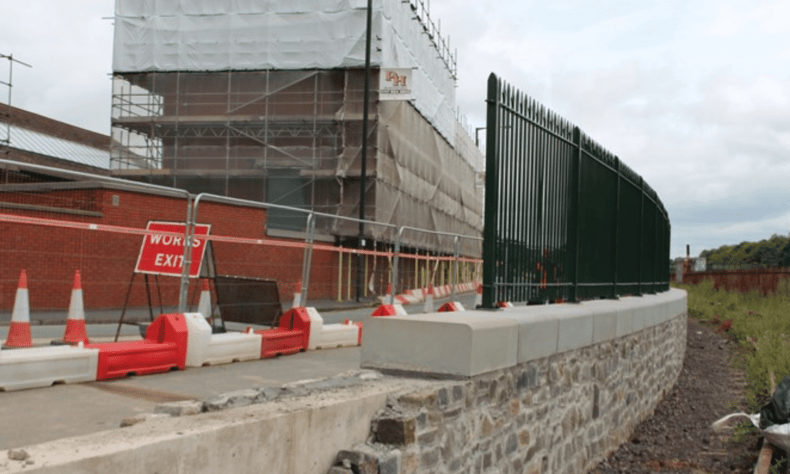Bristol City Council’s Cabinet has endorsed plans to future-proof the city’s historic waterside.
Bristol City Council’s Cabinet has today (9 March) endorsed plans to future-proof the city’s historic waterside.
Cabinet approved additional funding towards the completion of works to repair, restore, and assess structures and other assets around the River Avon and Floating Harbour. As one of several key decisions, Cabinet also endorsed the Bristol Avon Flood Strategy, following public consultation in Autumn 2020.
Funding approved by Cabinet includes £2.5 million of extra investment into infrastructure and historic assets around the Floating Harbour and River Avon New Cut over the next two years.
A detailed condition assessment of waterside infrastructure, much of which dates from around 1800, was carried out in 2019-2020. It found that a number of assets, including retaining walls, are in a critical or serious structural condition, following decades of under investment. The approved funding includes:
- £1 million for the replacement of the footbridge structure at the Underfall Yard Sluices.
- £500k to undertake immediate monitoring of all identified critical structures within the next two years.
- £1.0m to undertake further structural and geotechnical investigations. This will be used to determine a detailed timeline for works needed in the next five years.
The initial tranche of funding focuses on the 11 highest priority assets in need of investment due to their importance to the city’s strategic transport network. The council estimates that the investment needed to repair or replace all 11 sites in the next five years will be around £14.35m, including the £2.5m approved by Cabinet.
Cabinet also approved £2,491,190 to finish the Cumberland Road stabilisation project, following the collapse of part of the retaining wall in January 2020. Works will reduce the risk of future collapse, while measures will be built into the scheme to enable flood defences to be improved at a later date and reduce the risk of future flooding to the road and nearby properties.
The repair work will enable the Chocolate Path and historic railway line to re-open to the public and the MetroBus scheme can enter full operation. Completion is expected in summer next year.
Further investment into Bristol’s waterways includes the refurbishment of Redcliffe Bascule Bridge, which will take place this year in order to keep this iconic structure operating for years to come. The multi-million-pound project is the first major refurbishment of the 79-year-old bridge since 1996.
Councillor Kye Dudd, Cabinet Member for Transport, Energy & New Green Deal, said:
After decades of under-investment, we are acting now to ensure Bristol’s historic waterside is fit for the future.
This significant injection of funding will not only enable us to carry out urgent work now, it will also mean we can identify future needs in advance, reducing the risk of increased costs in the future and keeping the waterfront safe and accessible for Bristol’s residents and visitors to enjoy.
Among the major investment decisions, the Bristol Avon Flood Strategy, developed in collaboration with the Environment Agency, was approved by Cabinet. The strategy is the result of multiple technical studies to find the most feasible and cost-effective way of managing the increasing risk of flooding from the River Avon.
By better protecting the city from flooding, the strategy also proposes to improve walking and cycling links around the River Avon and into the city centre, as well as maintaining and improving public spaces, historic sites, and access to the river.
The proposals approved by Cabinet will also support investment at city centre brownfield sites, such as St Philip’s Marsh, providing much-needed jobs and homes in these areas, and unlocking over £7 billion in benefits to the local economy.
Proposals in the strategy were consulted on from October-December 2020 and city-wide feedback from the consultation was overwhelmingly positive. 92% of respondents agreed or strongly agreed that they supported the aim to future-proof the city and neighbouring communities, while 84% of respondents agreed or strongly agreed with the proposal to do this using adaptive flood defences, meaning defences will be built as high as needed at the time, with the option to raise them over time.
The next stage for the proposals is to develop a funding strategy for the additional funding required and progress to the development of an Outline Business Case. Capital costs for delivery of phase one are estimated at £216m, of which £88m has been identified in principle.
Bristol City Council will work collaboratively with many different organisations such as the Environment Agency, Local Enterprise Partnership and private companies to fund the proposed flood defences in the coming years. This will involve making applications to central government, as well as working with other partners, to secure the funds needed.
Works are expected to begin from around 2025. Extensive public engagement and consultation will take place as more detailed design proposals are developed.
Councillor Nicola Beech, Cabinet Member with responsibility for flooding, said:
It has been a thorough process to understand and develop the best flood defence approach for Bristol and the benefits it can bring to the city. Thanks to all those who took the time to read the proposals and give their views, and it is great to see support for this approach as the best way forward.
By approving this strategy, we can take a big step towards future-proofing Bristol and protecting homes and businesses in the city from the increasing risk of flooding. The proposed approach will also enable us to enhance access to the river, protect historic sites, and create better walking and cycling connections in Bristol, as well as unlocking areas for regeneration, so that we can build the homes, jobs and public spaces the city needs.
